

The first item that appeared was of Tézier and Bernheim duetting on the famous Pearl Fishers duet, “Au fond du temple saint”…
Beautifully sung, and further intrigued, I clicked on the next offering, “Che gelida manina” from what is Bernheim’s debut CD recital:
I was, as they say, “blown away” by this outstanding account. Sung in key, this reading is one of the freshest, most convincingly youthful and nuanced I have heard in a very long time. Bernheim, in commendable Italian, captures the conversational, intimate narrative just right; Rodolfo is, after all, telling Mimi all about himself, his desires and passions.
Interspersed are his outbursts of passion, and Bernheim’s upper register is just glorious—he soars with complete ease and abandon. Moreover, this is a voice of unusually beautiful tonal quality, of timbral clarity, an amalgamation of silver overlaid with a tinge of brightly burnished gold. It is the voice of a star tenor.
Happily, there is a live account, from the Wiener Staatsoper, of the same piece that is remarkably consistent with what you hear in the studio, but this being a staged performance, is even more immediate, spontaneous, with Bernheim at ease with his physical characterization:
Naturally, by my reaction to this exciting new talent I wanted to know more; what did we ever do before advent of the internet, file-sharing, and YouTube? (Okay, the answer is obvious—respectively, publicity and reviews via publications and periodicals and the opera pirates. But still.)
Born in Paris in 1985 and raised in Geneva, where he studied violin and piano, Bernheim began singing lessons at age 10. Matriculating from Lausanne Conservatory where he began at 18, he went on to Zurich via the Opernhaus’s Opera Studio, in 2010 joining the official roster of artists.
From there the tenor set in motion his international career, undertaking secondary roles as well as Tamino, steadily building up to leading parts such as Rodolfo, Gounod’s Faust, Lenski, Alfredo, Berlioz’s Roméo, Nemorino, Des Grieux, and the Duke of Mantua, along with song recitals. He already has a small discography of CD and DVD recordings.
As far as future repertoire is concerned, I’d love to hear Bernheim in more bel canto, especially as Bellini’s Elvino and Arturo—which both demand a good line an upper extension—and if not actually essaying Mozart’s Belmonte, Don Ottavio, and Ferrando, maybe their greater arias in recital or a future CD release.
However, the best and most revealing aspects of who Bernheim is as an artist can be gleaned from two impressive video interviews.
In this 12-minute segment, Bernheim holds forth with such impressively keen intelligence and perspective on what it means to be an artist, the very crucial steps necessary to grow and mature as one, the self-awareness needed, and the firm choices one must make in order to succeed, that I’d unhesitatingly recommend this to any burgeoning opera singer in seeking out practical, clear-headed wisdom:
Even though the recording under review was released nearly two years ago, it is in my view a must-have for lovers of the tenor voice, as well as for its considerable artistic merit; indeed, I have been playing it virtually non-stop as of late.
The most fitting introduction to his debut recital album is by Bernheim himself, who reflects thoughtfully and charmingly on the occasion:
A pivotal insight Bernheim offers is the prodigious task of recording and documenting for posterity his art. As he says, he never wants to be merely “content” with his work, but always pushing to do better still. A debut recital by a major classical recording company such as Deutsche Grammophon would be the stuff of dreams for any singer; but with that comes the awe-inducing demand and pressure to put forth their very best—and just on that score alone the responsibility to live up to what they want to do to measure up to that goal must be exhilarating on one hand, terrifying on the other.
Opera audiences are a tough lot to please, and any new singer on the scene has no choice but to inevitably sustain the standards by which seasoned aficionados have come to expect from their experiences with their beloved artists of the past. In addition, I am an advocate for, at the given junctures, upcoming and current generations of artists. Looking back is all well and good to draw constructive comparisons, but we as a public must welcome and encourage young artists into the fold; after all they’re what we have now.
I have no such doubts concerning Bernheim’s succession to, and belonging in my pantheon of outstanding artists I cherish. In fact the most odd conundrum I faced with this recording is that I have scant to near-nonexistent reservations on both the intentions and the results of Bernheim’s excellent work, both artistically and vocally; I could if I wanted to make a little deal of the intermittent slight stiffness of a transitional note following a strenuous phrase, but when everything else is so firmly, blissfully in place, such objections are inconsequential and meaningless.
Everywhere in all these selections, there is constant evidence of sensitive, scrupulous musicianship, backed by a well-schooled, thoroughly trained technique and vocal production; the equalization in all the registers is homogeneous, tightly-knitted, with no area developed at the expense of another. Most welcome is the blooming freedom at the top of the range, the prized commodity of the tenor voice; not once is there even an indication of bleating and bellowing, or of undue exertion.
There is no evidence either of exertion in the breath output; phrases are drawn out to their fullest legato values, with the indication of interest reserves in store, and the line sustained in their natural states in the texts—nothing is needlessly chopped up to accommodate a deficiency of inhalation. Bernheim has a command, too, of any dynamic level he wishes to summon; the fortes ring out with marvelous freedom, and the softest tones have a firmness to their core.
The voice is marked by that characteristic “halo of resonance” I regard as the signature of a well-produced tone. Laudable too is the conscientious pronunciation and diction in any language in which he is singing. In my view, proper phonation and sounding of pure vowels, allied with crisply articulated consonants, abets the integrity of pure singing values. All the elements coalesce, and all indications are there for continued growth and artistic prosperity—the sheer intelligence behind this effort is palpably evident.
One of the most welcoming features of this just over-an-hour-long recital are the introductory recitatives, where applicable, to the greater percentage of these pieces. We’re not just suddenly plunged into the aria proper, but the mood and ambiance is fittingly set up, allowing us the luxury of the preparatory connective tissue. Some of the scenes are shorn of their cabalettas, or concluding sections, but since no chorus or comprimarii were not engaged, this makes eminent sense.
The Italian selections on here match my first impression with the “Che gelida manina,” but the other items that gave me particular pleasure are the Duke’s “Ella mi fu rapita! Parmi veder le lagrime,” Edgardo’s “Tombe degli avi miei… Fra poco a me ricovero,” and the Luisa Miller Rodolfo’s “Oh! fede negar potessi…Quando le sere al placido.”
The buoyancy and elegance of the Duke’s cantabile aria, with markings—accents, dotted notes, dynamic graphs—scrupulously noted:
The wistful, plaintive urgency that is characterized in Rodolfo:
Most welcome in Edgardo’s desolate ruminations among the tombs is the sense of the ideal weight and timbre, plus the authority of delivery here (and ditto in the “Una furtiva lagrima”) in the Donizettian line:
The real revelations on this disc, though, are the French pieces. Revelations, because it has been an age and a half since they have sounded so authentic, in voice, manner of style, and in the tonal language vernacular; there’s a somewhat mysterious patent native-born speakers have, as opposed to those who learn French as a second language—and many learn it only well enough just to sing a role, but quite often it never sounds as impeccably right as from someone whose tongue was developed thusly from the time they were weaned (and this applies to any language).
But it is more than that. It appears that Bernheim has taken careful study of the almost-vanished French opera style. A serious scholar nowadays takes time to research, with the free availability of documentation from the dawn of recordings up to the present. From this evidence, you could plausibly put Bernheim in the illustrious lineage of the likes of Georges Thill, Léopold Simoneau, Henry Legay, and Alain Vanzo.
Take for instance, Des Grieux’s “En fermant les yeux,” where Bernheim immediately catches the ear with a breathtakingly gorgeous, ductile tone quality, the line suavely handled; and the high A near the end on “faut” done on that elusive voix mixte that French tenors seem to own exclusively:
Gounod’s Faust, once one of the most frequently mounted repertory staples, has been for the last several decades relegated to the category of “specialty opera”—and you rarely hear it done with an all-French cast, or at least, few singers fully conversant in the style. I don’t even remember the last time I heard from any major tenor a “Salut! demeure chaste et pure” as good as this:
Too, the impassioned “Ah! lève-toi, soleil!” from Gounod’s Roméo et Juliette has the requisite Gallic romanticism and the feeling of it sounding like a throwback to an earlier age; and from Berlioz’s Faust, “Nature immense, impénétrable et fière” has Bernheim engaging in a fuller, darker tone than I expected, and meeting the dramatic aspects of the piece admirably.
This, and Werther’s fatalistic foreshadowing “Pourquoi me réveiller?” seem to be introductions for future undertakings in these roles; based on these supremely authoritative accounts, the anticipation is tantalizing. They’d have the ideal exponent.
Benjamin Godard’s opera Dante and the aria “Tout est fini pour moi sur la terre” is one that is completely unfamiliar to me, but Bernheim makes a most persuasive case in this piece in which the title character laments his desperation over the loss of his love. (I do wish the booklet notes would have given us more information about the work).
As if that were not enough, Bernheim astonishes with Lensky’s famous aria “Kuda, kuda vi udalilis” from Eugene Onegin, in which he seems completely at ease with the Russian language (indeed, he may prove to be as facile as Nicolai Gedda, linguist par excellence), and imparting the wistful poignancy with a remarkable sense of the Tchaikovsky musico/dramatico line; it is as accomplished and tonally beautiful as any I have heard from the greatest exponents of the role.
Bernheim in this recital telegraphs such a sense of utter security that I suspect some listeners may think he is not working hard enough in the emotional temperature of these characterizations; indeed, he evinces practically no distress in the handling of any of these difficult arias. Interpretation begins where technique leaves off, and not until then.
In my book, any singer who has achieved the (often desperately) sought-out, but rarely achieved near-ideal, near-effortless hallmark ease of music-handling that this artist has so evidently accomplished, it’s proof that he has put all the work into the mastery of a craft that is often wildly variable (The old joke about tenors—“Often in error, never in doubt—definitely does not apply in this case.) The acute intelligence I believe will serve him well, and will make the right decisions at the right time to ensure a career of longevity.
Supporting Bernheim are Emmanuel Villaume and the PKF—Prague Philharmonia. Villaume is an unparalleled luxury as a conductor, something you don’t always get in aria recitals; listen to the introduction to Edgardo’s “Tombe degli avi miei,” for example to hear the precision and eloquence of the playing, as well as setting the mood with a fine sense of atmosphere. Most importantly, you get the sense that there is a real collaborative effort here between soloist and conductor.
Highly, enthusiastically recommended (as if I needed to write that!)
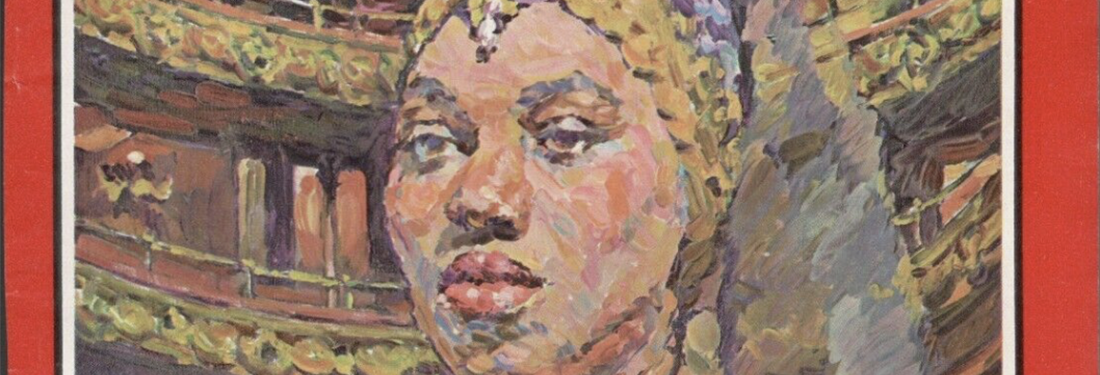
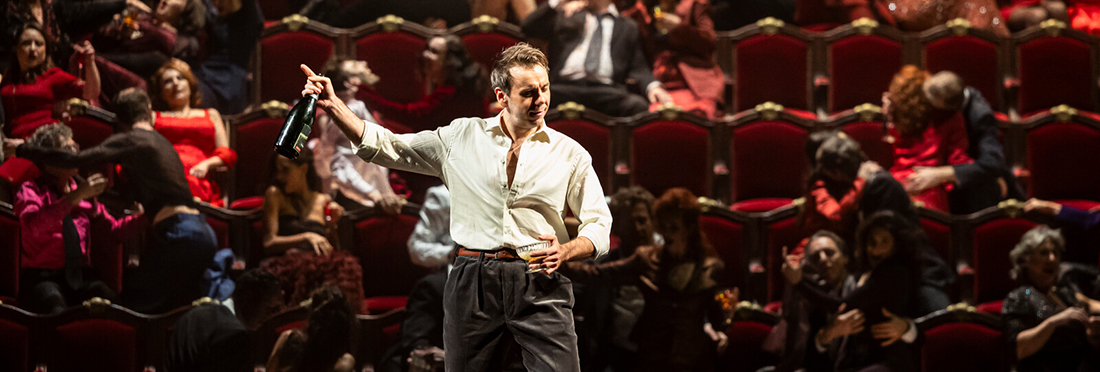
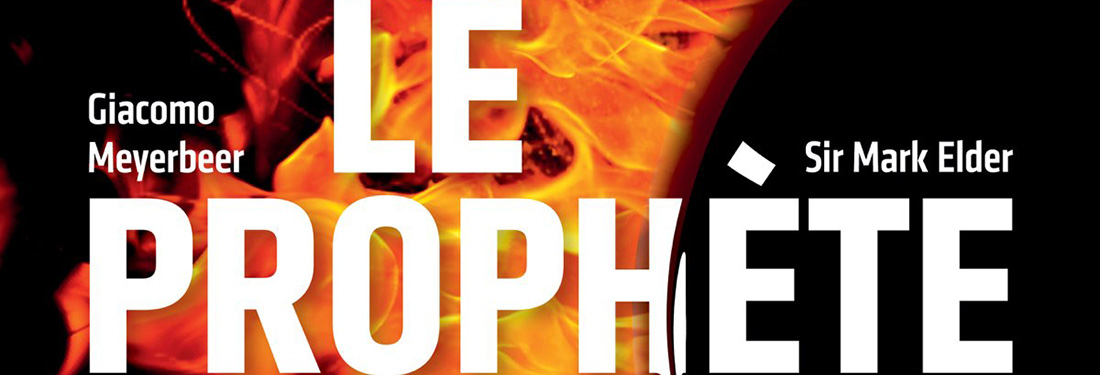
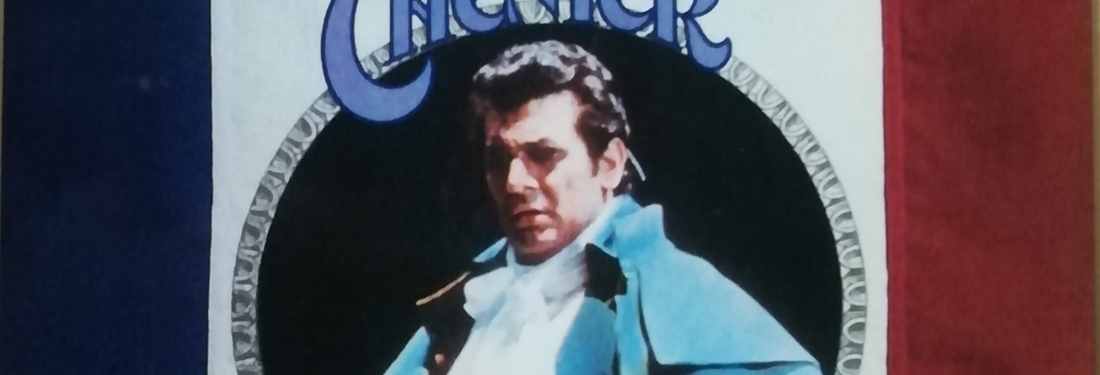
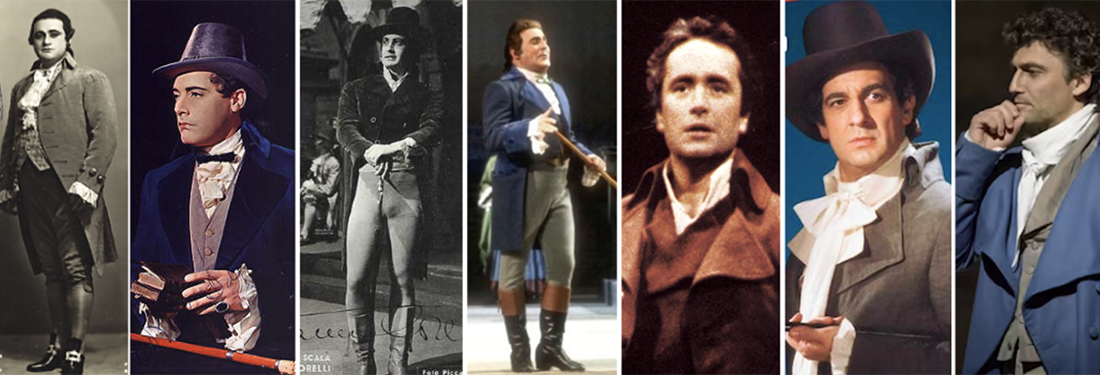
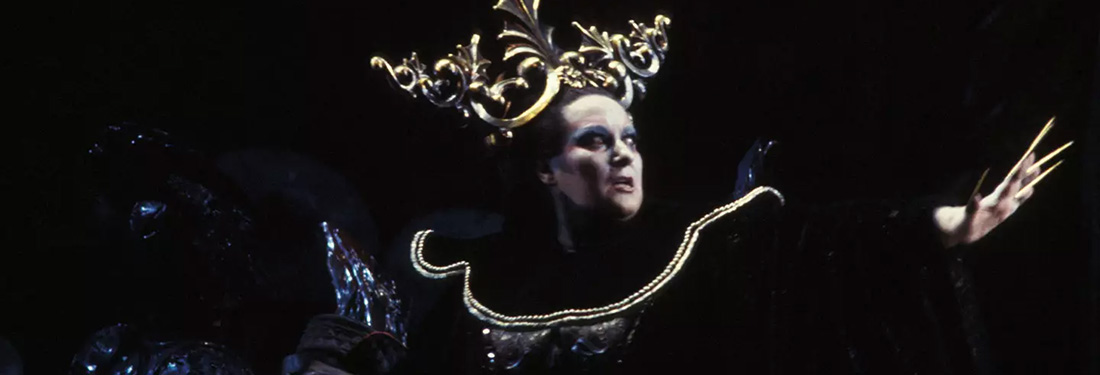
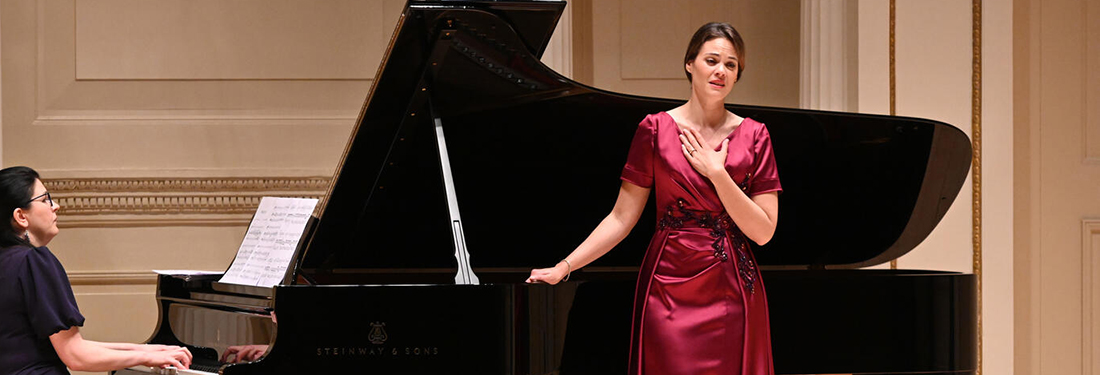
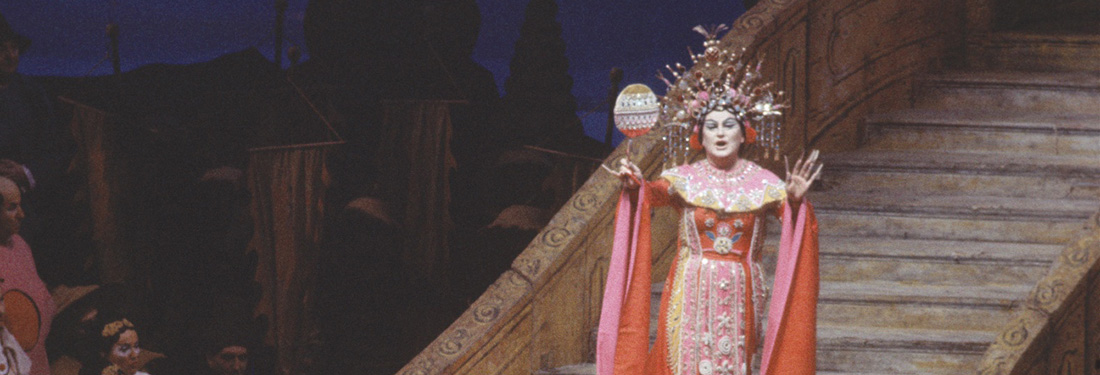
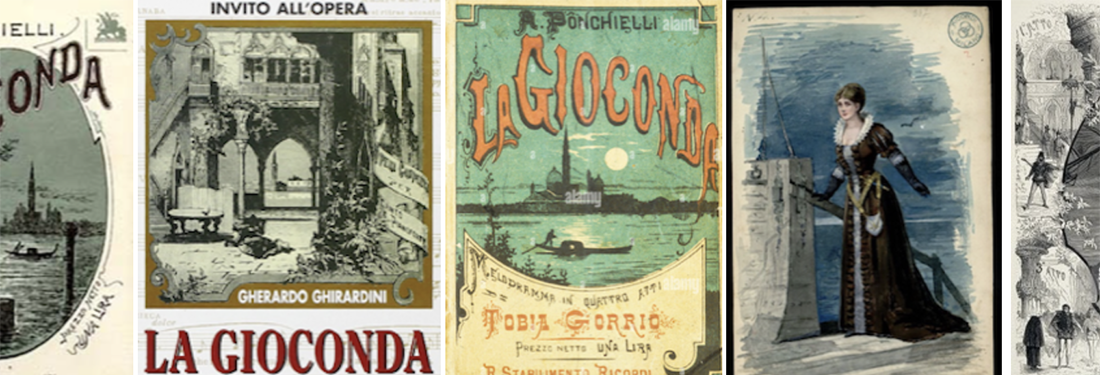
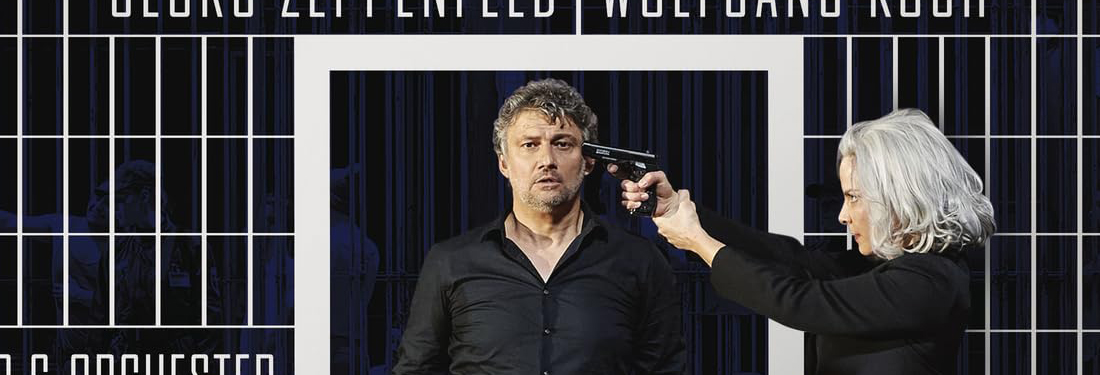


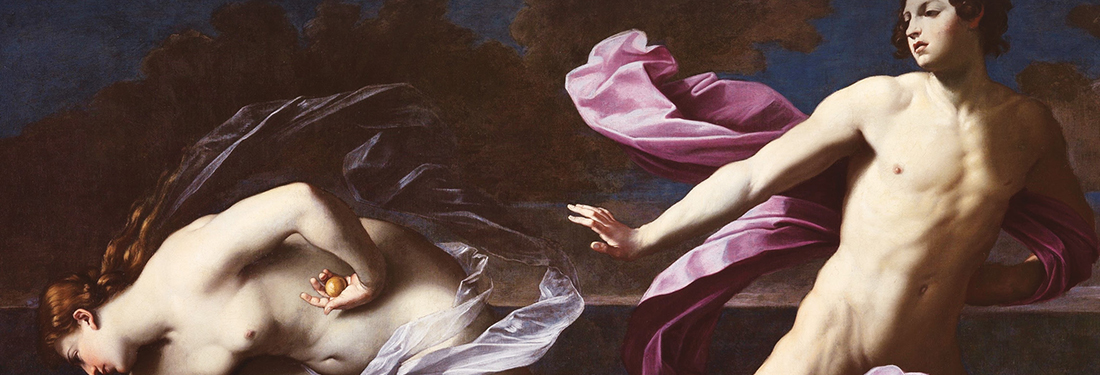






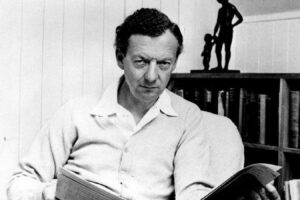


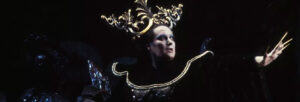




Comments